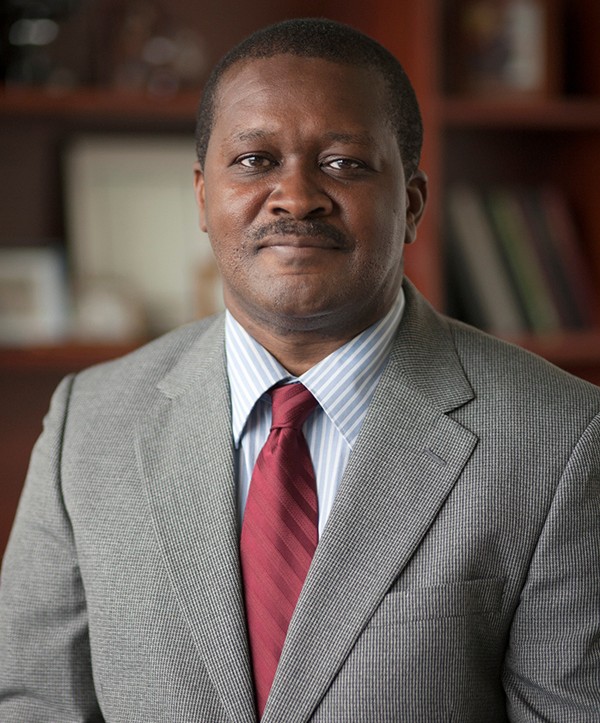Lynden Archer to lead Cornell Energy Systems Institute
By Syl Kacapyr
The Cornell Energy Systems Institute, formerly named the Cornell Energy Institute, has a new director and a new focus as one of the university’s main hubs for energy research and education.
Lynden Archer will serve a five-year term as the institute’s David Croll Director, succeeding Jefferson Tester, who is now the chief scientist for Cornell’s Earth Source Heat project. Archer is a professor and the former director of the Smith School of Chemical and Biomolecular Engineering, where he has researched transport processes for energy storage and carbon-capture technologies since 2000.
“He’s one of the leading researchers in the area of energy, so Lynden brings great credibility in his ability to lead by example,” said Lance Collins, the Joseph Silbert Dean of Engineering. “He’s also an extraordinarily strategic thinker and an incredible fundraiser.”
Archer’s work with lithium-metal batteries and nanoscale organic hybrid materials earned him a spot on the “World’s Most Influential Scientific Minds” list compiled by Thompson Reuters in 2015, and his demonstration of an electrochemical cell capable of sequestering carbon from the atmosphere and turning it into electricity was named one of the “10 Ideas That Will Change the World” by Scientific American in 2016.
The Energy Systems Institute is run by the College of Engineering, but organizes energy engineering-based research and education across the university. While it will remain focused on the challenge of reducing carbon emissions without lowering quality of life, Archer said under his leadership the institute will more narrowly focus on enabling innovations in materials, technology and energy systems designs for impacts in transportation, manufacturing and the electric power grid.
In transportation, the institute will seed research focused on advanced batteries, fuel cells and associated power-management systems aimed at making electrified transportation smart, cost-effective and commonplace.
In collaboration with the College of Engineering, the institute will identify and recruit faculty research stars to Cornell with a second specific purpose: to make transportation and manufacturing systems data-driven, dynamic components of electric power networks.
Through cross-college collaborations, the institute will build Cornell expertise, including in agriculture and chemical synthesis, for converting carbon dioxide emissions to useful products such as biofuels and plastics.
A strategic planning group commissioned by Collins added the term “systems” to the institute’s name to reflect the importance of developing technologies as components of larger entities. As an example of the systems challenges posed by a new technology, Archer points to a transportation report finding electric cars in India have a worse carbon footprint than gasoline cars.
“The electricity stored in the batteries that power even the most state-of-the-art electric car ultimately comes from the electric grid,” Archer said. “If the grid is burning relatively low-quality coal, it generates quite a bit more CO2 to produce that electricity. So one has to think of new transportation technologies as part of a greater system to assess their full impact.”
With a sharpened focus on three research themes, the institute also expects to play a stronger role in commercializing technologies developed at Cornell. There aren’t many U.S. companies investing heavily in emerging technologies such as carbon-capture and fuel cells, and as a result, researchers must bear more of the responsibility for bringing their ideas to market, according to Collins.
“We’re on the frontier, developing new materials and technologies that may not come to fruition for another 30 years,” said Collins, “but we’re also looking at full implementation of demonstration systems that can change the energy landscape tomorrow. And that’s where entrepreneurship plays a role.”
Cornell’s “living laboratory” philosophy, in which new technologies can be tested and deployed on campus, will continue to be a key element of the institute. Archer points to Cornell’s Lake Source Cooling and Earth Source Heat projects as examples where Cornell is already leading the way.
“There’s an opportunity to bring student teams together that go beyond just doing world-class research, writing patents and winning national contests,” Archer said, “to get to a place where our students begin to see that they too can play a role in lowering humanity’s carbon footprint and at the same time train their creativity into making new products that can compete and succeed in the market.”
Syl Kacapyr is public relations and content manager for the College of Engineering.
Media Contact
Get Cornell news delivered right to your inbox.
Subscribe
